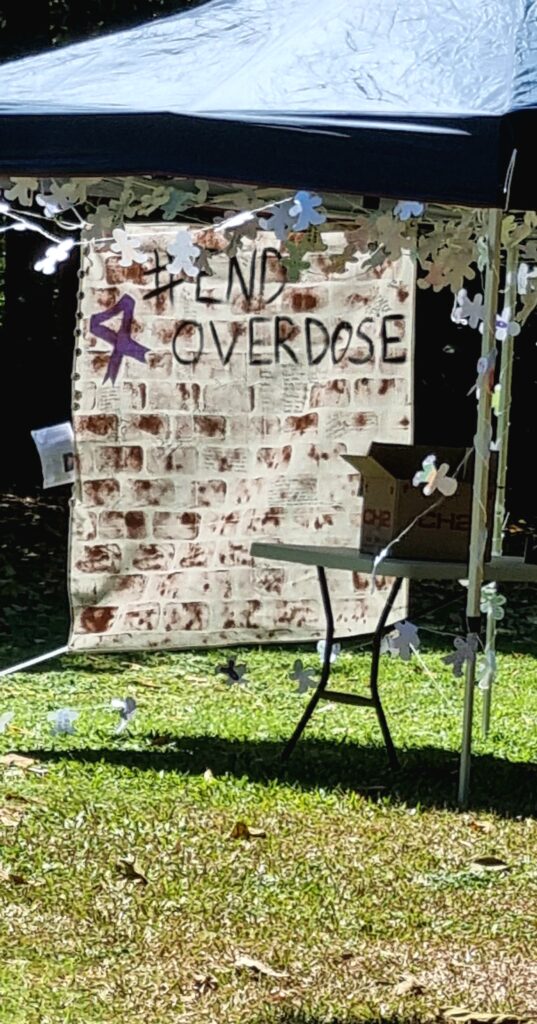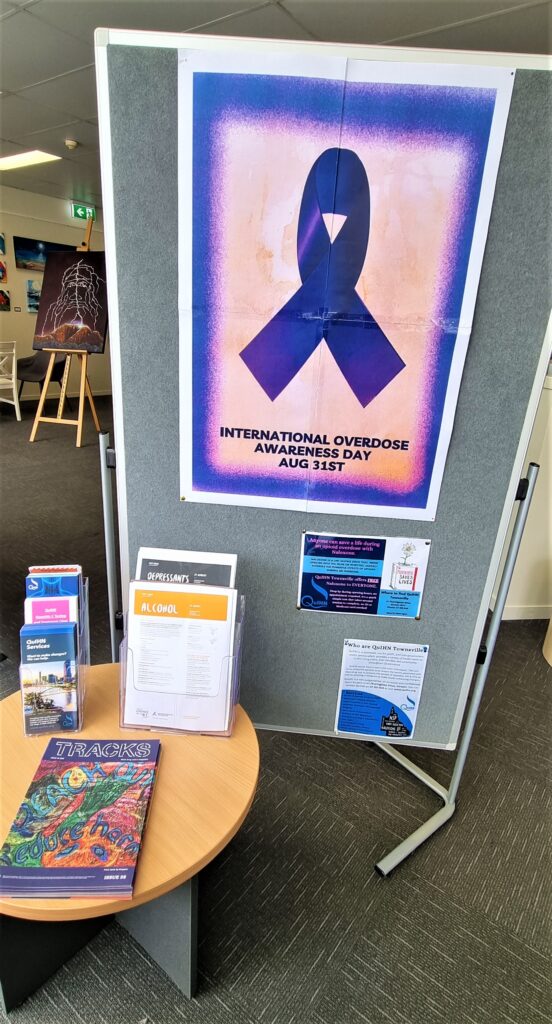Q – Can you introduce yourself by telling me about the work you do at QuIHN?
I’m a Peer-Identified Needle and Syringe Program (NSP) Worker. In my job, I provide injecting equipment to people who use drugs. I also provide health and harm reduction advice on how to use drugs in a safer manner.
I have over 20 years of injecting experience. I also have experience with Opioid Substitution Therapy, hepatitis C and hepatitis C treatment. It’s part of my job as a Peer-Identified Worker to share my experiences and the knowledge I have gained from them with people if they ask or need.
Q – Can you describe the overdose related work that is done at QuIHN in your Regional location?
At QuIHN, we try and create awareness around overdose through health promotion in the NSP, by promoting safe injecting practises and health messages, for example start low, go slow. We handout Naloxone and do Naloxone training. Sometimes we’ll do Naloxone training over the counter with a quick quiz to make sure people know how to use it. But other times if people are happy to come in, we’ll sit down and we’ll go through it in-depth, and some crew love that! We get lots of people returning for it as well, which means they used it, which is fantastic.
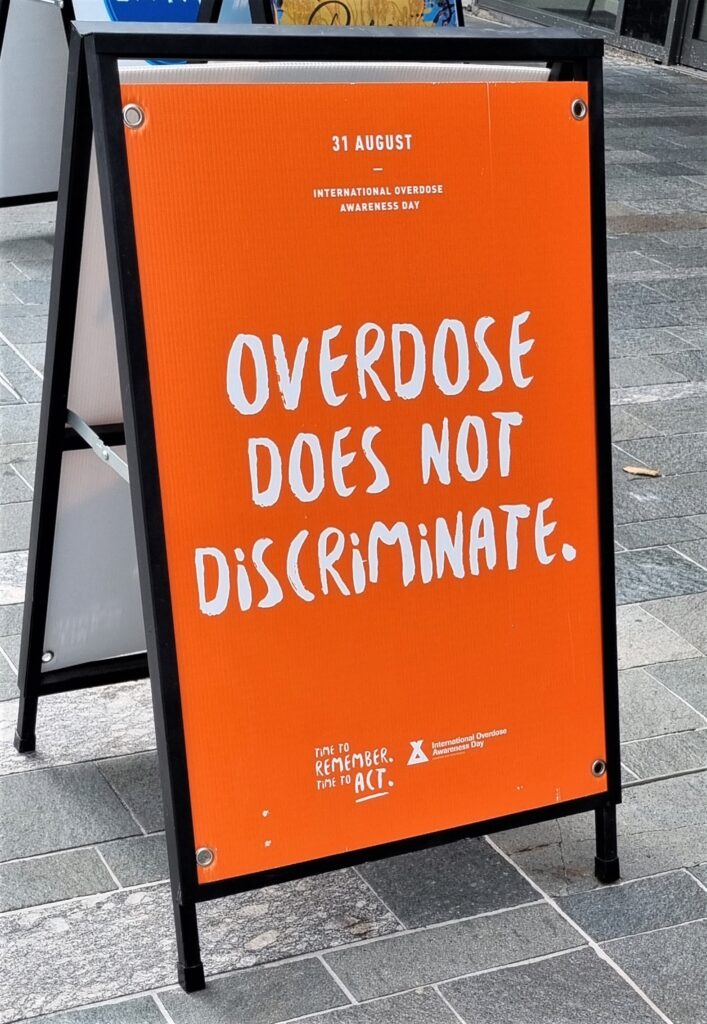
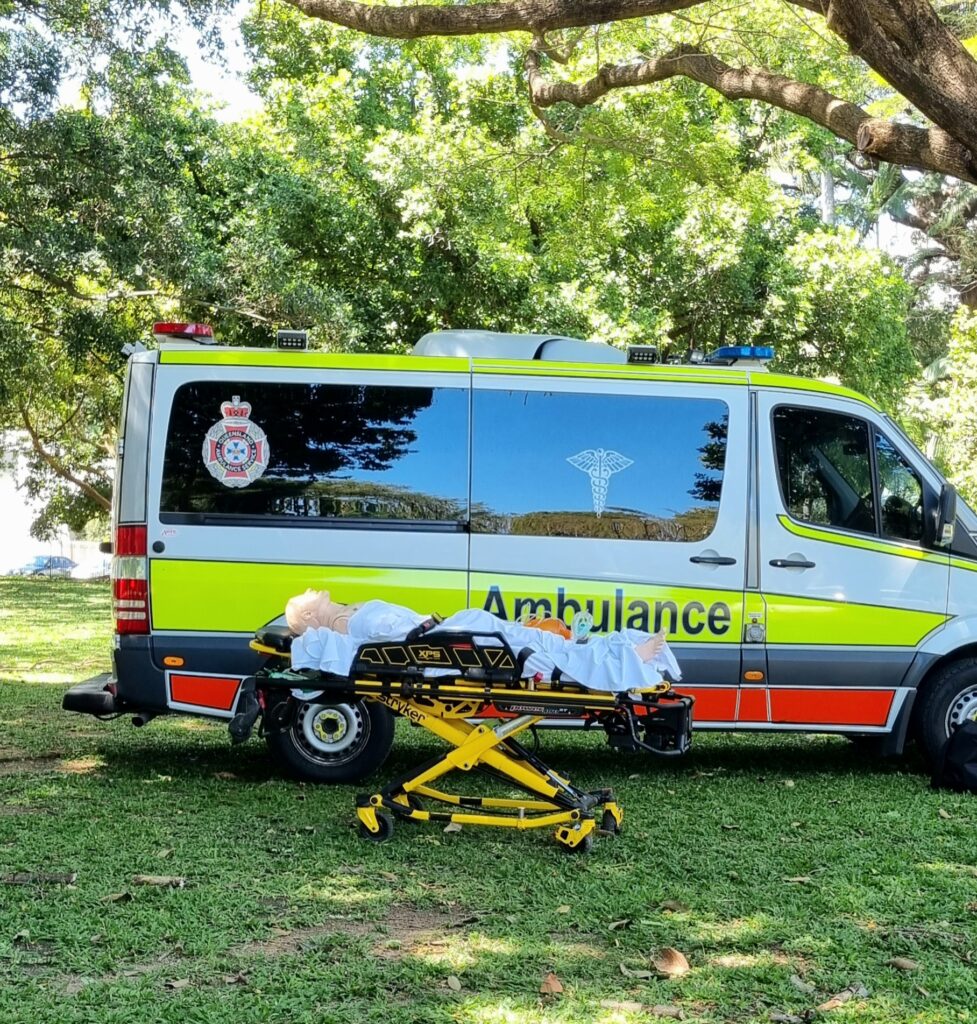
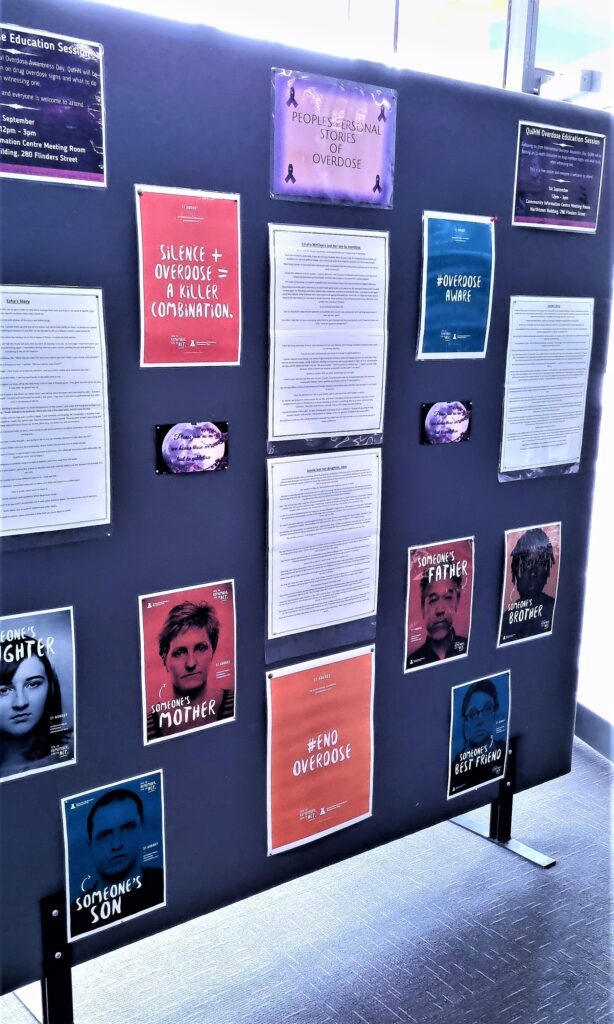
Q – What does International Overdose Awareness Day mean to you?
For me, it’s about remembering people that we’ve lost to overdose and also about raising awareness so we can prevent it. Having overdosed twice myself, (I was lucky and woke up both times without needing an Ambo) and having known others who have overdosed, some of whom lost their lives, I know how important it is to teach people about this topic.
Each region of QuIHN does overdose awareness work and Overdose Day differently, but on the day of the event in our region, we have Ambulance Officers come out to do a CPR demo for the public, clients and staff and we talk about Naloxone and how to use it. We might play some fun, educational games and give out some prizes.
We will also talk about the people we have lost overdose, and how it’s important to honour those people. It’s also important to honour the community who are responding to overdose and who are empowering other people to prevent more people being impacted by overdose.
Q. Is there a time where you felt the positive impact of what you do?
Only a few weeks ago. A couple came in and they sat down to do some training. He injected Morph and opiates and she used Meth. They didn’t really know much about Naloxone. She certainly didn’t. He knew a little bit about it, but neither of them knew how to use it and when to use it. And then a week later they came back in and she said that he had dropped on the weekend. And it wasn’t just a little drop, it was a… he went blue stopped breathing kinda drop. She said she was so grateful that she had the Naloxone there. She used it immediately and after one dose he started breathing but wasn’t responding verbally so she gave him another dose and he was just like “hey babe, what’s going on?” He had no idea what had happened because often you don’t know.
So they came back in a few days later to get more and to tell us about it and to just say how grateful they were that we had given them Naloxone and shown them how to use it. She said if we didn’t have that, he would have died. So, ya know, it’s good when we hear stories like that. I mean you don’t know how long the Ambo’s gonna take. Sometimes people don’t wanna call an ambo either.
Q – If you could say one thing to people who don’t understand the issue of overdose what would you say?
That this is preventable. It can be easily prevented- especially when it comes to opiates.
We need to continue to raise awareness of overdose and Naloxone and particularly because it’s not just people who inject opiates that can overdose. Many overdoses occur from script medication; or from combining pain medication with Valium or alcohol.
You know, it could be your Grandma or your Mum. So, we also need to raise awareness around that, I don’t hear people talk about that so much.
Another important thing to remember is, we can overdose on almost any drug –not just opiates. Opiates have the potential to be lethal. However, we can also overdose on drugs like GHB, meth, alcohol, Valium and when combining these drugs, the risk of overdose is much higher.

